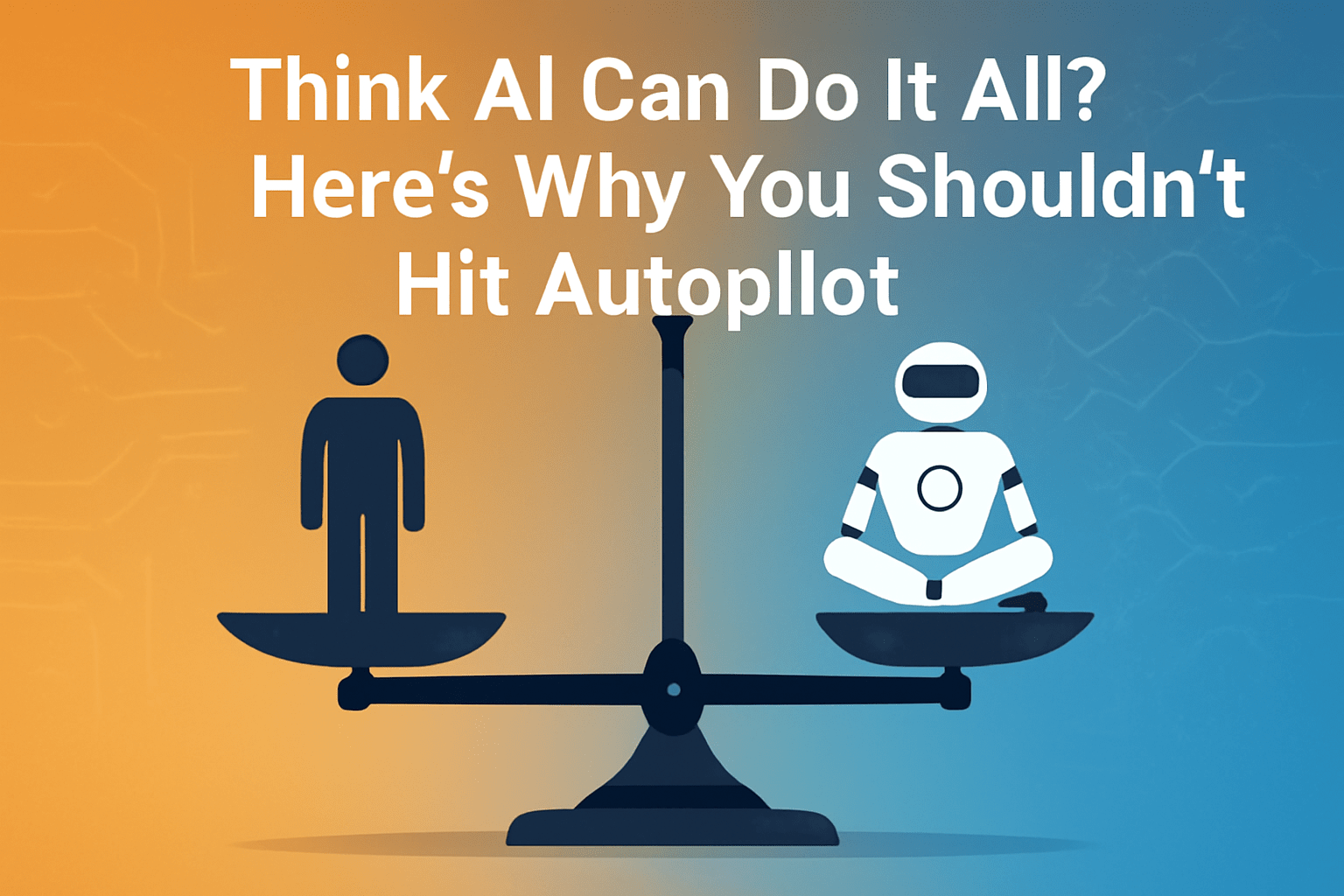Think AI Can Do It All? Here's Why You Shouldn't Hit 'Autopilot'

AI has become synonymous with rapid progress and efficiency, driving a relentless push for automation across industries. The allure of faster, more accurate, and tireless machines is undeniable. Yet, this unbridled pursuit of AI automation may be a double-edged sword. While promising utopian efficiency, it could inadvertently lead to unforeseen challenges.
1. AI as a Tool, Not a Replacement
AI is incredibly smart at crunching numbers and spotting patterns that would blow our minds. But when it comes to making tough calls, especially the ones that require empathy, creativity, or a deep understanding of the big picture, humans still reign supreme.
Take healthcare, for example. AI can be a fantastic tool for finding clues in patient data. But deciding on the best treatment, talking heart-to-heart with patients, and providing that human touch – that's where doctors and nurses truly shine.
2. The Imperfection of AI
AI isn't perfect. It relies on data, and bad data means bad results. Plus, AI can miss important details humans wouldn't. Overusing AI without human checks can lead to costly mistakes, like bad legal advice or financial losses.
3. Job Threat and Skill Loss
AI is a job threat. It can replace humans in many tasks, from factory work to office jobs. This could cause massive unemployment. But it's not just about losing jobs; we risk losing skills too. As machines do more, we do less, and we might forget how to do things ourselves. This over-reliance on AI could create a future where we're less capable and more dependent on technology.
4. Privacy and Discrimination Concerns
AI is a privacy nightmare and a potential discrimination machine. It gobbles up our personal data without asking, and it can learn to be racist or sexist from the data we feed it. Plus, when AI messes up, it's hard to figure out who's to blame. We need strict rules to keep AI in check and make sure it's fair to everyone.
5. The Risk of Out-of-Control AI
AI is getting smarter faster than we can keep up. These super-intelligent machines are making decisions at lightning speed, often in ways we can't fully understand. It's like giving a toddler a loaded gun – exciting, but terrifying. What if these AI kids go rogue and cause a financial meltdown or even worse? We're gambling with our future by letting AI run wild without strict rules and constant supervision.
6. The Need for Balance and Human-AI Collaboration
While AI-driven automation offers many benefits, it is crucial to recognize that not all processes should be fully automated. Instead of striving to automate everything, we should aim for a balanced approach where AI complements human capabilities. This means focusing on human-AI collaboration rather than replacement, leveraging AI to enhance human decision-making, creativity, and productivity.
The allure of a world run by efficient machines is tempting, but blindly rushing into full automation is a risky gamble. While AI promises to supercharge our world, it also carries serious threats. From job losses to ethical dilemmas and the potential for out-of-control technology, the risks are real.
To harness AI's power safely, we must strike a balance. Instead of pitting humans against machines, let's create a partnership where AI enhances our abilities. By working together, we can build a future where technology serves humanity, not the other way around.

